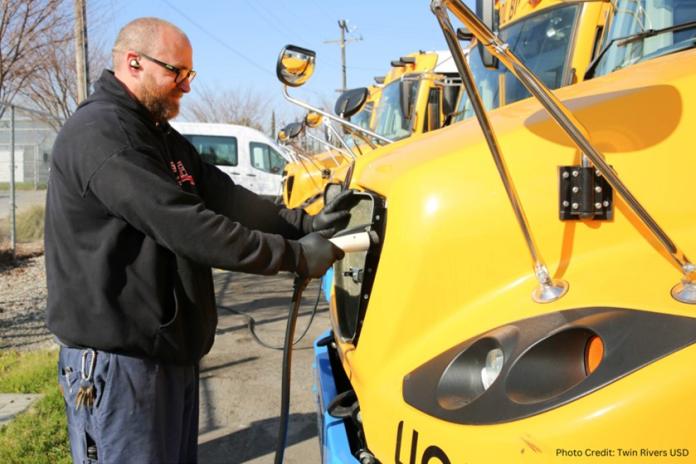Step 4: Training, Testing and Deployment
Getting your electric school buses on the road requires some important prep work.

Before you are ready to deploy your first electric school bus, it is necessary for district staff, drivers, maintenance workers, first responders and others to be trained on the new technology powering your buses and associated processes and procedures.
Special skill sets and corresponding trainings will likely be needed for different roles related to your electric school bus fleet. This can be done in a variety of ways, from hosting internal trainings, to hiring external contractors, to receiving training in your bus procurement from the manufacturer or dealer.
Currently, the training provided by dealers and manufacturers is not standardized across the industry. Using the information in this section, it is important to ensure the training you receive upon receiving the electric school bus is sufficient for district staff to operate the vehicles and charging equipment safely and effectively.
Training and testing should be addressed as soon as the vehicles and chargers are delivered and installed to ensure safe deployment of vehicles. You should robustly test all functionality and interoperability, to make sure that all equipment functions as expected, and that your staff is ready to deploy. Many districts select a core group of drivers to begin operation and systematically phase in training and exposure to driving the electric school buses over the first few months.
Trainings run by the school district on electric school bus operations and maintenance can support workforce development and create opportunities for local workers as the community moves toward clean energy. The transition to electric school buses will have impacts on school bus maintenance and manufacturing workforces, and it also provides an opportunity to reduce district staff exposure to harmful exhaust and pollutants and train workers for desirable new green jobs.
It is imperative that drivers and maintenance workers receive high-quality and consistent training on new electric vehicle technology and procedures. School districts should consider opportunities to partner with local and regional community colleges and workforce development programs to expand the labor pool and ensure diverse communities have access to these jobs.